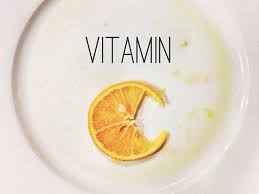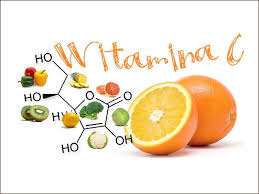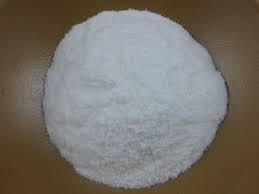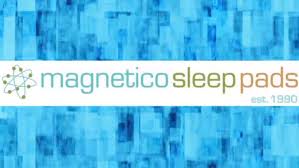Vitamin C & Sugar - Do I need it?6/27/2019 Vitamin C gets a lot of attention these days but I'd like to look a little deeper at some of the commonly held beliefs surrounding Vit C in alternative health. Vitamin C is an electron donor and this function gives it the ability to have major benefits for health since the more electrons you retain the better your health. Most animals make vitamin C in the liver. Humans (and guinea pigs- which is why they are a good animal to do tests on) do not have the ability to make their own vitamin C and must consume it from foods. A few years back I stumbled upon the recommendation to megadoese vitamin C to bowel tolerance. My life, diet and knowledge base were very different then. I was on a glucose heavy diet and consuming vitamin C was a benefit to me but I now feel no need to consume massive amounts and if I did it would be solely from food. No one argues that vitamin C is most prevalent in sugary foods. This is because plants eat light and convert that light into sugars. The higher the light environment, the higher the sugar content. The further you go from the equator, the less vitamin C you will find until you get to the Inuits who traditionally eat a high fat, high DHA fish diet and are consume nearly no vitamin C. So the light environment provides vitamin C most in direct connection to the amount of sugars produced from plants' light consumption. This is the sugar and vitamin C connection. Sugar has disastrous effects on the body and this is why nature adds vitamin C to its sugar; the two compete. The more sugar you eat the more vitamin C you need to consume. Scurvy is an illness that develops when no vitamin C is being consumed. Scurvy was discovered when sailors would go out to sea for prolonged periods of time and not have access to vitamin C. So why aren't the Inuits or even modern day Inuits (people on the carnivore or keto diets) getting scurvy? They are not consuming sugar and in turn they don't need to consume vitamin C in the way that high sugar diets require. My guess is that the sailors where consuming carbohydrates in food and drinks that did not have vitamin C in them resulting in the negative effects of sugar without the positive effects of vitamin C to offset them. When recommended daily allowances of various vitamins were being determined it was based on average high carb diets. The truth is that the amount of vitamin C you need should be based on the amount of sugar you are consuming and the amount of sugar should be directly connected to what your light environment is like. How much vitamin C you need is very specific to you your location, diet, stress and more. Even your tech/EMF environment affects this. If you are at the equator, eat the fruit in the sun and you will get sugar and Vitamin C to oppose it without issues. If you are not, then I suggest you stay away from "Super Foods" high in sugar & vitamin C that communicate the wrong information about the environment to your body. Right now it's summer where I live and I am very tan from getting as much natural light as possible. I also guard (cover) my skin and eyes from the artificial/LED lighting and tech screens. I'm eating some berries and fruit that fit my light environment and my season. *(See my talk on Food - the where and the when tell you what to eat). As the seasons change and the amount of light in the day decreases so will my sugar and vitamin C intake decrease along with it. Another factor with Vitamin C is stress. Stress increases the need for vitamin C as stress causes many problems in the body. Caffeine is a toxic stress substance that spike cortisol and other stress hormones. If you are on a glucose diet (eating more than 10% carbs) and drinking coffee you may need even more vitamin C to help offset these issues. There is another important point. When I say vitamin C I do not mean the powered white stuff (ascorbic acid). Ascorbic Acid is chemical vitamin C. It is often grown from GMO corn or GMO mold.....yes mold. This ascorbic acid can disrupt copper in the body, which in turn disrupts zinc leading to all kinds of issues. I'm not saying no one should ever take ascorbic acid for specific contexts as it all depends on who & where you are. If you are eating doughnuts and coffee in the morning this fake vitamin C is better than nothing. However if you are interested in real health, here are some take-aways.
-Let you light environment determine the foods you eat. -The more sugar you consume, the more the vitamin C you need. -Rethink consuming caffeine and sugar. -Rethink processed ascobic acid vitamin C. -Eat whole foods that contain nature's vitamin C that will offset the natural sugars they contain. -Source your foods as seasonal and local as possible. Vitamin C has become a common substance for health and as always, the environment makes a thing good or bad. There are no blanket answers, diets, etc. If you have been feeling like you have to take extra vitamin C you may want to look into removing the things that would make you need it to begin with.
0 Comments
Leave a Reply.Health Blog LibraryAuthorRob Alexander is on a journey to learn not just about health but everything else. Archives
February 2024
Categories
All
|
This website does not provide medical advice.
The information, including but not limited to text, graphics, images and other material contained on this website are for informational purposes only. The purpose of this website is to promote broad consumer understanding knowledge of various health topics. It is not intended to be a substitute for professional medical advice, diagnosis or treatment. Always seek the advice of your physician or other qualified Health care provider with any questions you may have regarding a medical condition or treatment and before undertaking a new health care regimen. Never disregard professional medical advice or delay in seeking it because of something you have read on this website.







 RSS Feed
RSS Feed
